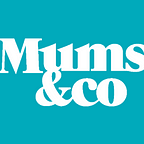If you’ve got marketable skills and you enjoy what you do, then becoming a professional consultant can be a great way to start your own business. Not only will you have complete control over your workload, but you’ll also be able to avoid the typically higher startup costs associated with other business types, for example, a product or tech business.
So what exactly do you need to do to establish yourself in this lucrative profession?
We spoke to Julia Gottlieb, profession marketing consultant and founder of Amadeus Brand, about what she did to get her start in the industry.
Make sure you’ve got the necessary foundations
Prior to making the decision to become a professional consultant, Julia says that you should make sure you’ve got the necessary foundations.
According to Julia, there are three key things you need:
‘Firstly, you’ll need to have some experience. This doesn’t necessarily mean you’ll need to have had a lengthy career, though, or that your skills need to be ‘unique’ — you simply need to have skills that people are in need of, and are happy to pay for.’
It may come as a surprise to some that your skills don’t need to be ‘unique,’ but Julia has a great example to demonstrate how this works:
‘A friend of mine, a marketer, was hit up at a networking event by a rather over-zealous attendee who asked “There are thousands of marketing consultants, what makes you different?”
The reality is that there are thousands of consultants, but there are also thousands of businesses who need her services. So she actually doesn’t need to be much different from the next marketing consultant, she just needs to identify the niche she wants to target and go confidently in that direction.’
Some very reassuring advice! In addition to your skills, though, Julia says that it’s also important to have a (basic) network to start out with:
‘Going out on your own can be daunting, so try and build a good network of people you can call on to spread the word about your services. My advice is to get in front of people as much as possible on LinkedIn, Facebook or Instagram.’
Last but not least, Julia says that you definitely need ‘drive’ to make it as a professional consultant:
‘As a consultant, you’ll soon realise it’s often feast or famine [in terms of the work you get]. In the quieter times, you’ll definitely need drive to keep plugging away with business development, or developing your thought leadership.’
It’s not just about your subject matter expertise…
If you feel like you’ve got the necessary foundations to become a professional consultant, there’s a few more skills you’ll need to really succeed, says Julia. And they all happen to start with a P!
‘The first ‘P’ professionalism
You’ll need to be professional in everything you do — from how you engage with your clients, to how you deliver your work. This is really important for mums who are combining primary carer responsibilities with consulting. My approach is to let my clients know up-front that my consulting is parallel with family commitments.’
So what are the other Ps?
‘It’s equally important to be persistent, and patient. In terms of persistence, you need to take a long-term view of your work. Even if someone won’t need your services for 12 months, make sure you schedule a coffee with them and keep in touch.’
‘And as for patience? Well, just remember that that it might take months to match the income you made as an employee. But the flexibility and ability to tread your own path makes it all worthwhile!’
Set up and scale up
If you think you’ve got a good foundation, plus the 3 Ps, then you’re well on your way to becoming a successful consultant, says Julia. But there’s still a few practical things you’ll need to do to get your offering out to the market. According to Julia, you’ll need to:
‘Identify your offering. I’d suggest making a list of your skills and ranking them in order of strengths. Your core offering will be your ‘primary’ skills, but you still may be able to offer other services outside of these with help (or outsourcing).’
‘After you’ve done that for your skills, you’ll need to do the same for industries you have experience in. Once you’ve figured this out, this will form your niche.’
After you’ve found your niche, Julia says you need to test it on the market:
‘See whether there’s an appetite for your services. This may be as simple as sanity checking with a few members of your professional network whether there is a viable market for your proposed offering. Get as much feedback as you can — the more feedback the better.’
Finally, Julia recommends creating basic business tools, such as a website and business cards, so you can market your services.
Originally published at https://www.mumsandco.com.au.
